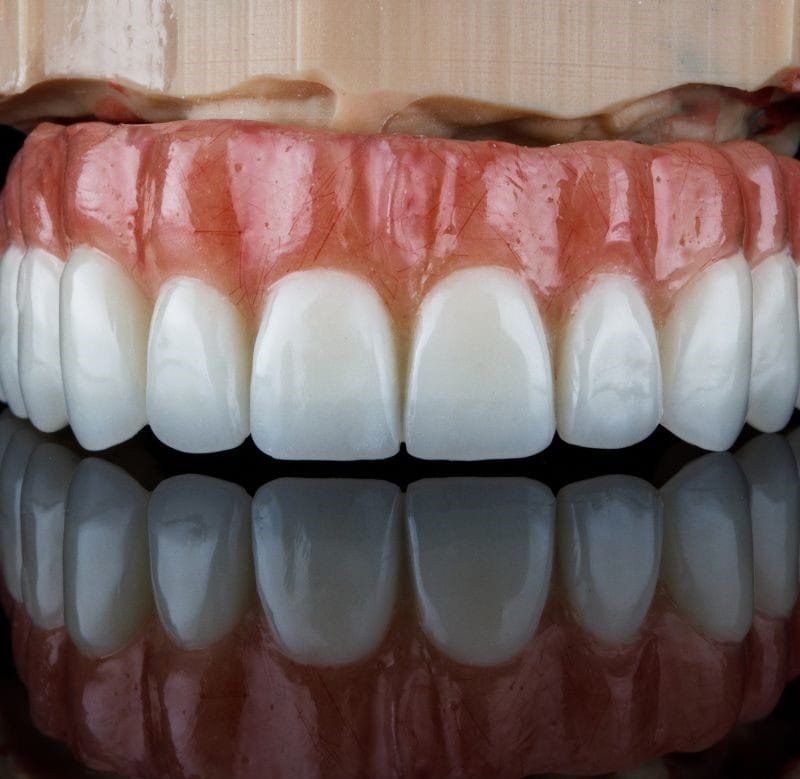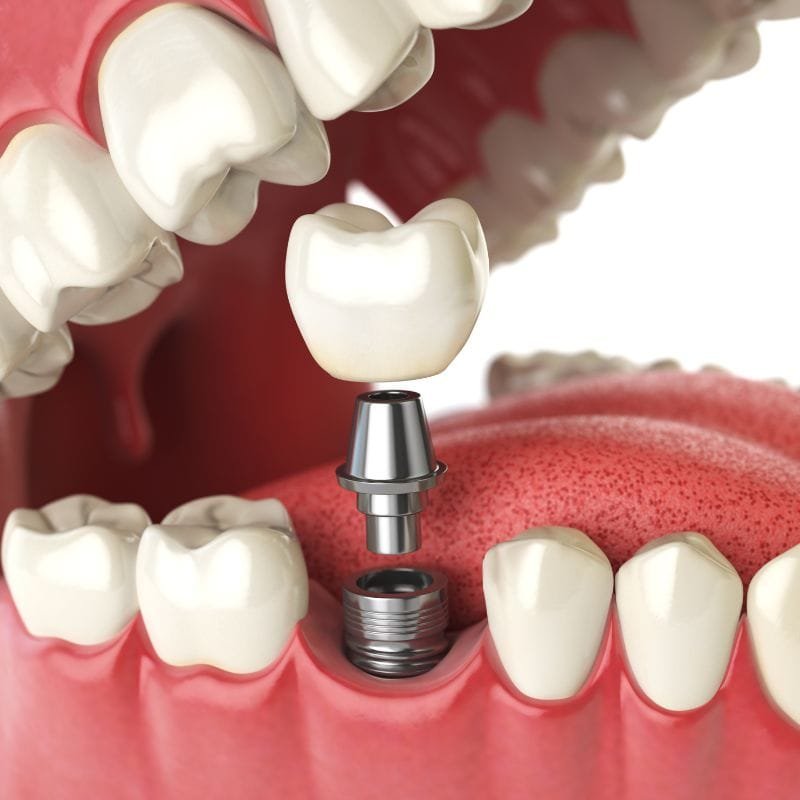The Underestimated Importance of Wisdom Tooth Extraction: Why it Shouldn’t be Ignored
Wisdom Tooth Extraction, also known as third molars, is the last to emerge in the back of the mouth. For some lucky individuals, these teeth grow in without causing any problems. However, wisdom teeth can become a source of pain, discomfort, and even severe oral health issues for many others. Wisdom tooth extraction is a standard dental procedure that involves removing these teeth to prevent or alleviate potential complications.
The main reason wisdom teeth often need to be extracted is the lack of space in the mouth. As the jawbone has evolved, it has become smaller, resulting in insufficient room for these additional teeth. This can lead to impacted wisdom teeth, which means they cannot fully emerge from the gums. An impacted wisdom tooth can cause a range of problems, including infection, damage to surrounding teeth, and the formation of cysts or tumors.
Extraction of wisdom teeth is typically recommended as a preventative measure, even if they are not currently causing any issues. This is because problems with wisdom teeth tend to worsen over time. Removing them early can avoid potential complications, and the patient can enjoy better oral health.
Wisdom Tooth Extraction: The Potential Consequences of Ignoring
While the idea of undergoing a dental procedure may not sound appealing, ignoring the need can have serious consequences. One of the most common issues associated with impacted wisdom teeth is pain. As these teeth try to push through the gums, they can cause significant discomfort, especially when chewing or biting down.
Impacted can lead to gum inflammation, infection, and pain. The partial eruption of a wisdom tooth creates a pocket between the gum and the tooth, which can easily trap food particles and bacteria. This can result in gum disease, known as pericoronitis, characterized by redness, swelling, and a foul taste or odor in the mouth.
Another potential consequence of ignoring wisdom tooth extraction is the misalignment of surrounding teeth. As impacted wisdom teeth try to force their way into an already crowded mouth, they can push against the adjacent teeth, causing them to shift or become crooked. This can undo the effects of previous orthodontic treatment and require additional dental work to correct.
The Benefits
While the thought of undergoing wisdom tooth extraction may be daunting, numerous benefits exist. Removing wisdom teeth early can prevent complications, improve oral health, and improve overall well-being.
One of the main advantages is preventing pain and discomfort. By removing impacted or partially erupted wisdom teeth, patients can alleviate the constant ache and soreness associated with these teeth. This can significantly improve their quality of life and allow them to enjoy eating and speaking without discomfort.
Another benefit is the prevention of infection and inflammation. Removing problematic wisdom teeth dramatically reduces the risk of gum disease and other oral infections. This can help maintain healthy gums and prevent the spread of bacteria to different parts of the mouth.
Furthermore, wisdom tooth extraction can prevent the misalignment of surrounding teeth. By removing these teeth early on, there is no chance for them to push against neighboring teeth and disrupt their alignment. This can save patients from the need for orthodontic treatment in the future and help them maintain a straight and beautiful smile.

Common Misconceptions
Despite the importance of wisdom tooth extraction, several common misconceptions may discourage individuals from seeking this dental procedure. It is essential to debunk these myths and provide accurate information to help people make informed decisions about their oral health.
One common misconception is only necessary if the teeth are causing pain or discomfort. Pain is just one of the many potential problems associated with wisdom teeth. Even if they are not currently causing pain, impacted wisdom teeth can lead to serious oral health issues down the line. It is always better to address the problem early on to prevent complications.
Another misconception is that wisdom tooth extraction is a painful and risky procedure. While it is natural to feel apprehensive about any dental procedure, wisdom tooth extraction is a routine and safe procedure when performed by a qualified dentist. Local anesthesia is used to numb the area, ensuring a painless experience during the extraction. With modern techniques and advancements in dentistry, the procedure is generally quick and straightforward.
It is also important to note that the recovery period after wisdom tooth extraction is typically manageable. While there may be some discomfort and swelling, following the dentist’s post-operative instructions can help minimize these effects. Most patients can resume their normal activities within a few days, with complete healing occurring within a few weeks.

Choosing a Reputable Dentist
When it comes to wisdom tooth extraction, choosing a reputable dentist is crucial to ensure a successful and comfortable experience. Here are some factors to consider when selecting a dentist for this procedure:
- Experience and expertise: Look for a dentist with extensive experience performing wisdom tooth extractions. They should be knowledgeable about the procedure and able to handle any potential complications that may arise.
- Credentials and qualifications: Check the dentist’s credentials and qualifications to ensure they are adequately trained and licensed to perform wisdom tooth extractions. They should be a member of reputable dental associations and have a good track record.
- Technology and facilities: Consider the dental clinic’s technology. Advanced equipment and a clean, modern environment indicate a dental practice prioritizing patient care and comfort.
- Patient reviews and testimonials: Read reviews and testimonials from previous patients to get a sense of their experiences with the dentist and the quality of care they received. This can provide valuable insights into the dentist’s expertise and professionalism.
By taking the time to research and select a reputable dentist, patients can feel confident and at ease throughout the wisdom tooth extraction process.
The importance of reading Yelp reviews before undergoing wisdom tooth extraction in Tijuana
When it comes to wisdom tooth extraction, choosing a reputable dentist is crucial to ensure a successful and comfortable experience. Here are some factors to consider when selecting a dentist for this procedure:
- Experience and expertise: Look for a dentist with extensive experience performing wisdom tooth extractions. They should be knowledgeable about the procedure and able to handle any potential complications that may arise.
- Credentials and qualifications: Check the dentist’s credentials and qualifications to ensure they are adequately trained and licensed to perform wisdom tooth extractions. They should be a member of reputable dental associations and have a good track record.
- Technology and facilities: Consider the dental clinic’s technology. Advanced equipment and a clean, modern environment indicate a dental practice prioritizing patient care and comfort.
- Patient reviews and testimonials: Read reviews and testimonials from previous patients to get a sense of their experiences with the dentist and the quality of care they received. This can provide valuable insights into the dentist’s expertise and professionalism.
By taking the time to research and select a reputable dentist, patients can feel confident and at ease throughout the wisdom tooth extraction process.
The importance of reading Yelp reviews before undergoing wisdom tooth extraction in Tijuana
Tijuana has become a popular destination for those considering wisdom tooth extraction due to its affordable dental care options. However, it is crucial to thoroughly research and read Yelp reviews before choosing a dental clinic in Tijuana.
Yelp reviews provide valuable insights into the experiences of previous patients. Reading these reviews can help prospective patients gauge the quality of care, professionalism, and overall satisfaction of others who have undergone wisdom tooth extraction at a particular clinic in Tijuana.
Look for dental clinics with consistently positive reviews, as this indicates a high level of patient satisfaction. Pay attention to reviews that mention the dentist’s expertise, the facilities’ cleanliness, and the patient’s overall experience. This information can help prospective patients choose a reputable dental clinic for wisdom tooth extraction in Tijuana.
Exploring the cost and affordability of wisdom tooth extraction in Tijuana
One of the main reasons why individuals consider getting their wisdom teeth extracted in Tijuana is the cost. Dental care in Tijuana is significantly more affordable than in many other countries, including the United States and Canada.
The exact cost of wisdom tooth extraction in Tijuana can vary depending on several factors, such as the complexity of the procedure, the number of teeth being extracted, and the dental clinic chosen. However, even with these variables, the cost of wisdom tooth extraction in Tijuana is generally much lower than in other countries.
It is important to note that affordability should not be the sole determining factor when choosing a dental clinic. Prioritize the quality of care, expertise, and patient reviews while considering the cost. By balancing affordability and quality, patients can ensure they receive the best possible care for their wisdom tooth extraction in Tijuana.
The advantages to getting in Tijuana
In addition to the cost savings, there are several advantages to getting wisdom tooth extraction in Tijuana. These include:
- Accessibility: Tijuana is easily accessible from the United States and Canada, making it a convenient option for individuals seeking affordable dental care.
- Quality of care: Many dental clinics in Tijuana prioritize patient care and satisfaction. By choosing a reputable clinic with experienced dentists, patients can receive high-quality care that meets international standards.
- Modern facilities: Dental clinics in Tijuana are equipped with modern technology and facilities, ensuring a comfortable and efficient patient experience.
- Short wait times: Compared to some countries, the wait times for wisdom tooth extraction in Tijuana are often shorter. This means patients can address their dental needs promptly and avoid prolonged discomfort. By considering these advantages, individuals can decide to get their wisdom teeth extracted in Tijuana.
Aftercare and recovery tips following wisdom tooth extraction
After undergoing wisdom tooth extraction, proper aftercare and recovery are essential for optimal healing. Here are some tips to follow:
- Follow post-operative instructions: Your dentist will provide specific instructions for aftercare. It is necessary to follow these instructions carefully, including taking prescribed medications and attending follow-up appointments.
- Manage pain and swelling: Some pain and swelling are normal after wisdom tooth extraction. Over-the-counter pain relievers and applying an ice pack to the affected area can help manage these symptoms. Avoid using aspirin, as it can increase bleeding.
- Stick to a soft diet: For the first few days after extraction, stick to a soft diet that does not require much chewing. This can include soups, yogurt, mashed potatoes, and smoothies. Avoid hard, crunchy, or spicy foods that may irritate the extraction site.
- Practice good oral hygiene: While it is important to avoid brushing the extraction site for the first 24 hours, gently rinsing your mouth with warm saltwater can help keep the area clean. After the initial 24 hours, resume brushing and flossing, but be careful around the extraction site.
- Rest and take it easy: Allow yourself time to rest and recover after the procedure. Avoid strenuous activities and give your body the chance to heal. Following these aftercare tips, patients can promote healing and minimize potential complications following wisdom tooth extraction.
Conclusion: Prioritizing wisdom tooth extraction for optimal oral health
In conclusion, wisdom tooth extraction should not be underestimated or ignored. Understanding the potential consequences of neglecting this dental procedure can help individuals make informed decisions about their oral health. Patients can prioritize their oral health and prevent future complications by choosing a reputable dentist and considering options like Tijuana for affordability and quality of care. With proper aftercare and recovery, wisdom tooth extraction can improve oral health and overall well-being. Prioritizing wisdom tooth extraction is a proactive step toward optimal oral health and should not be overlooked.


